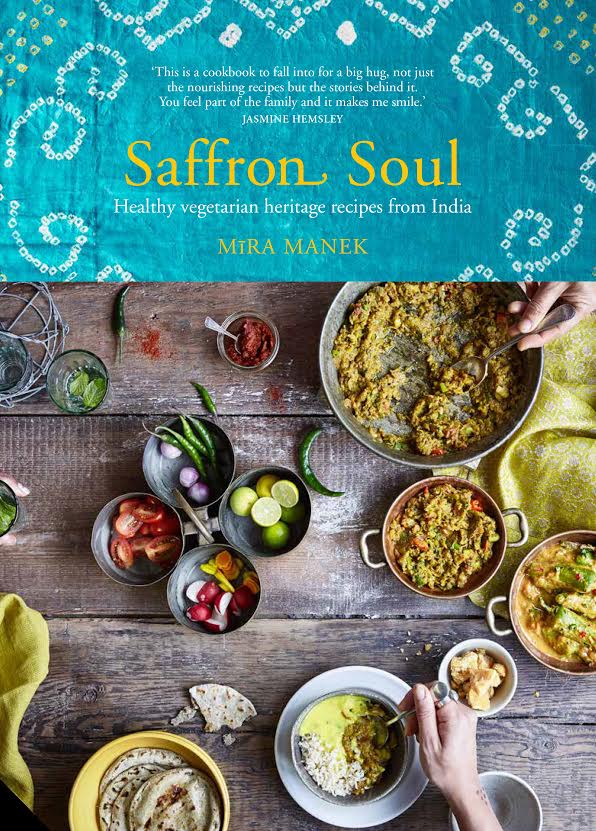I recently had the epiphany that for me, there’s no point in buying a recipe book from a restaurant chef. I don’t want to cook like a chef and when I’m at home I don’t want to eat like I’m at a restaurant. When a long, busy day comes to an end and I’m contemplating dinner, I don’t want make or eat fussy food. I want simple food, clean food; a meal that’s not too difficult to prepare. And so these days I much prefer the culinary insight of non-restaurant folk.
Enter Mira Manek and her debut cookbook Saffron Soul. Learning from her mother and grandmother, Manek naturally began to cook Gujarati food and subsequent travelling through India helped her to realise how authentic, well-rounded and inherently healthful her repertoire was. So she set out to help redefine Indian food by sharing this wealth of lighter, healthier recipes on her blog and through her supper club.
The book begins with Manek’s personal story about her somewhat difficult relationship with food and eating including some lovely family photos. Manek then lists the spices, essential ingredients, key pastes and garnishes and the contents are divided into morning, anytime, light, dinner and sweet recipes. The entire book is brimming with stunning photography; it’s one of those books that you can browse for visual inspiration alone.
Many of the recipes will be seem very, possibly too exotic, for run-of-the-mill curry-lovers; this is not a book about curries or Indian restaurant food. Saffron Soul is the real deal and contains the kinds of techniques, recipes and ingredients used by Indian mothers and wives both in India and here in the UK. I know this because I’ve been learning some simple home-cooking from a Keralan friend and flipping through the pages of Manek’s book, my eyes lit up with recognition at methods that use rice and dal fermentation, boiled peanuts or cashews and finding recipes like shrikhand and large section at the end about the art of Thali.
Anyone interested in vegetarian, vegan and healthy eating and cooking will be inspired by Manek’s vibrant debut. She has taken Indian cooking traditions and bought them up to date by incorporating ingredients and modern nutritional insight. You won’t find fried bhajis or highly sweetened desserts and chutneys but instead you’ll marvel at all the wonderful things that you never knew you could do with fresh fruit, vegetables, grains and pulses and you’ll become more familiar and comfortable using a wide array of Indian spices.
This is an impressive debut by Manek and a must-own for anyone interested in heritage Indian cuisine or expanding their vegetarian repertoire and indeed their palatte.
